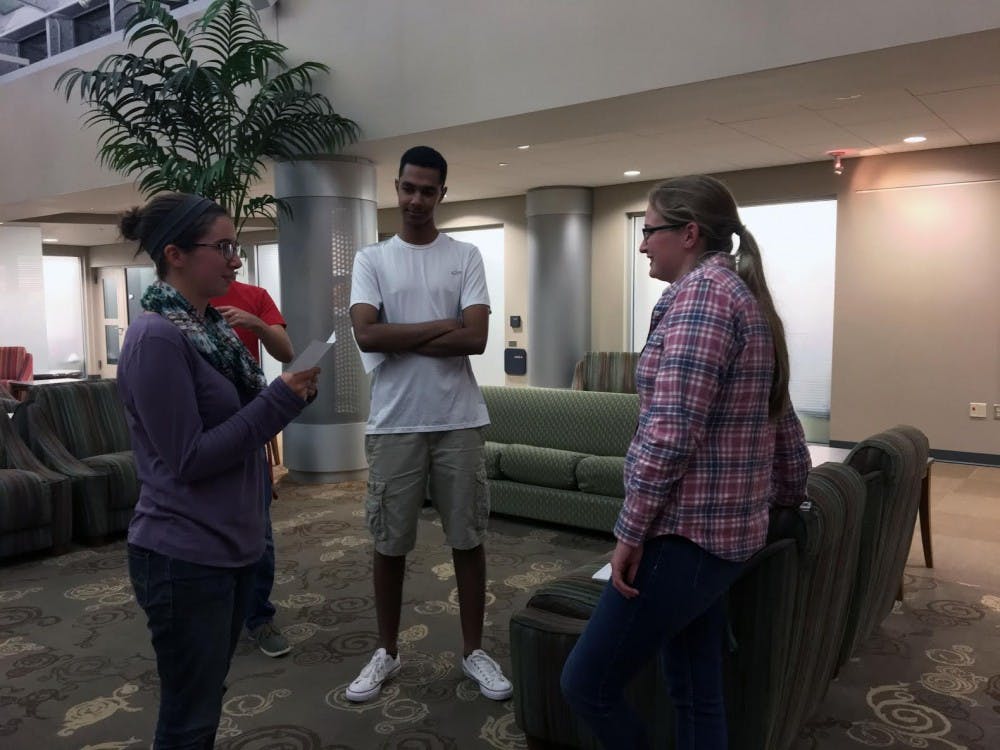How often do students consider what it might be like to live with a disability? Resident assistants in DeHority Complex tried to answer that question with a Breaking Barriers event Sept. 27.
The event aimed to educate students about disabilities through interactive activities at three stations. The program, organizers said, was to help students understand their peers are going through more than what they observe in everyday interactions.
Sophomore computer technology student Maurice Murphy found the program to accurately portray disabilities.
"The station I went to was about dyslexia and I have dyslexia," Murphy said. "[The station] did a really good job of ... showing what dyslexia is like to people who don't have dyslexia."
At the dyslexia station, students were asked to read a passage through a simulator that portrayed how dyslexia affects someone. The program uses JavaScript to simulate a similar effect, and Murphy found the software to accurately capture what it's like living with dyslexia.
"It was definitely an accurate representation," Murphy said. "A lot of people just think it means that you can't read ... people don't really understand it's just processing words weirdly."
While professors made it a point to mention the Office of Disability Services during syllabus week, there was little to no explanation as to what services were offered, students at the event said. Sophomore social work major Rebecca Scott is a note taker, test proctor and a scribe for students with disabilities, and she said she wants the distribution of information to be more clear.
"I currently work with disability services here at Ball State and it's important for me to learn how to accommodate people better," Scott said. "That's something in my job I've noticed I struggle with, is learning how to work accommodations in."
Scott said she recognized the importance of becoming acquainted with disabilities to better accommodate her peers and noted it's easy to overlook silent disabilities in the classroom. In order to better accommodate everyone, Scott said universities and students should be more aware of silent disabilities such as hearing loss, dyslexia and attention deficit hyperactivity disorder.
"It makes education more accessible for everyone," Scott said. "I know there's a lot of people that if accommodations weren't available, they would not be able to pursue an education just because of the challenges they personally face. So Ball State has to continue offering and maybe expand accommodations so that every person has equal, or fair access to education."
Organizers at the event said they thought the program was a success, and resident assistants said they plan to host more activities like this one in the future.





